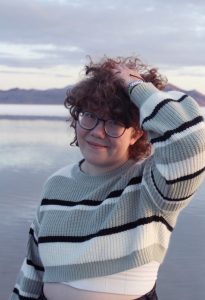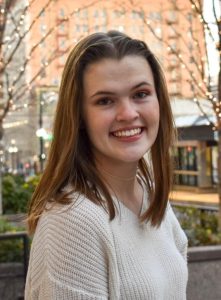July is Disability Pride Month, and it directly follows LGBTQ+ Pride Month. Community overlap is common, given that a third of queer adults identify as disabled. Marsha P. Johnson, one of the most impressive founders of current queer culture, was disabled.
Despite the community’s roots, Pride events continue to be inaccessible. The queer community must acknowledge its ableism and become accessible to people of all abilities.
Pride and Accessibility
Pride celebrations don’t often go out of their way to include disabled people. In an article with CBC News, Ariana Giroux, a wheelchair user, said, “What I need is to feel in solidarity with my community, and I can’t because my community is being in solidarity in places I can’t access.”
Pride events aren’t accessible to wheelchair users, as parades often take place on uneven ground and don’t have specific viewing areas for wheelchair users. Parades are also inaccessible to those who use canes, as are events like dances and rallies. Deaf queer people can’t access events if there aren’t interpreters. Service animal users may struggle to bring their animals to events with large crowds. People with severe food allergies cannot go to events at bars or enjoy catered food.
Considering 36% of LGBTQ+ adults self-reported a disability in a 2022 poll by the Human Rights Campaign, this is a massive portion of the community being excluded.
The Queer Disabled Experience
The queer disabled experience is individual to every unique person. Many queer people find their disabled and queer identities intersect.
“Both of my identities inform each other,” said Ari Moloney, a queer disabled U student from Australia. “A lot of the events the queer department at my university runs are not particularly accessible … to people with mobility issues.”
Moloney also expressed frustration with dating while disabled, including being broken up with and struggling in the dating sphere due to their disability.
Sivan Raz, another queer disabled person based in the U.S., said, “The thing that is different about the disabled community is that the level of information and understanding are far behind what we would expect in 2023.”
Raz discussed how people assume themselves to be very progressive and that they have an innate understanding of disability, and how Raz disagrees with this assumption.
“This problem of ableism that is wide in general society does not skip the queer community, unfortunately,” said Raz.
Another queer disabled person, C.V.V.M., wrapped up the argument perfectly. “We’re all outsiders. So why are we going to [exclude] someone who’s an outsider in a different way?” C.V.V.M asked.
Pride Without Police
Pride Without Police, an event hosted by Salt Lake Community Mutual Aid, did the necessary work to make its event more accessible this year. But in 2022, the event was criticized for its lack of readily available accessibility information. The flyer didn’t include information about mobility aid accessibility or mask requirements. The lack of a mask requirement meant some immunocompromised community members couldn’t attend the event.
However, in 2023, PWP made accommodations for improved event accessibility. Masks were required and image descriptions were included on all Instagram posts to improve accessibility for screenreaders. The event also had a designated wheelchair section, ASL interpreters and even a low-stimulation tent. Additionally, PWP encouraged attendees to submit any additional accessibility requests.
PWP provides a great example of how Pride events can improve to put a focus on accessibility and including disabled community members.
Infantilizing Disabled People
The phenomenon of infantilizing disabled people spans all communities. Treating disabled people like children is harmful, unnecessarily victimizes them and is used to treat them as lesser. Disabled people are not lesser.
In the queer community, infantilization becomes a big issue. If queer people express themselves in any way other than the societal binary, they’re called childish. This infantilization of queer people is more prevalent with queer disabled people, which promotes inaccessibility through exclusion. The queer community faces so much backlash from external forces, but the community must step up and change its ways so it does not target its own members through exclusive practices, including infantilization.
It’s not the responsibility of disabled people to make others feel ok about their disability. Accommodations and accessibility are not something that should have to be asked for. It should be offered with open hands, especially for the queer community.
Disabled people should not be afterthoughts. Intersectionality bolsters communities — we’re stronger when we stand together.















Ezra • Sep 13, 2023 at 2:41 pm
There’s a new student club this semester focused on building community and promoting education for lgbt+ people with disabilities. They’re called Invisible at The U. You can find their event schedule on Instagram or Campus Connect.
Morgan Champine • Oct 9, 2023 at 5:48 pm
Thank you so much for letting me know! I will check this out! 🙂